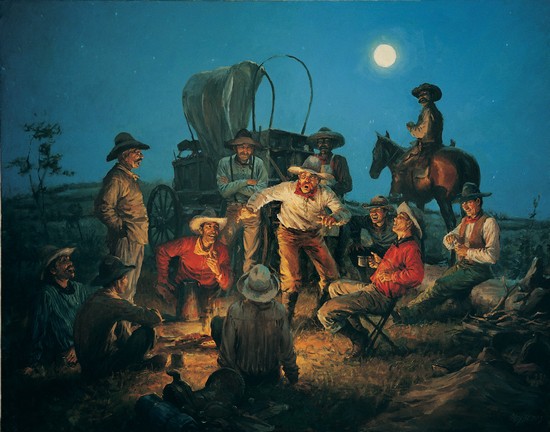-
Ezekiel 34-37
Four weeks ago we met the young Ezekiel who is called to be a whistleblower and to expose the corruption and degradation of the priests and leaders of those who have been left behind in Jerusalem. Instead of deliverance from Nebuchadnezzar they are going to be overwhelmed by his armies. God has left the Temple and Jerusalem. All that will remain in Jerusalem is what will remain in this world when the Church departs – a world without pity, mercy, justice, hope or pleasure. Only complete delusion. Evil that has been boiling below and ever present in the world will be revealed. What has been hidden will be obvious. In…
-
Daniel and Belshazzar
With nothing being said, King Nebuchadnezzar has died and his son (or maybe his grandson) has assumed the throne. It’s gone so quickly, hasn’t it? We first met Daniel as a young man only five chapters ago and now here he is at 85. We know almost nothing from history about Belshazzar but what we do know suggests that he was a ruler serving under another ruler named Nabodinus. We don’t know but for the purposes of the story we’ll refer to Belshazzar as the King of Babylon as at the time of this story Nabodinus had just been killed in battle and so Belshazzar may have been giving this…
-
A Proper Calling
Tomorrow afternoon I am going to interview Roy Goble about his new book, “Junkyard Wisdom Rebuilt” and one of the themes in the book and Roy’s life is his relationship with his father. I want to know more about that as it sounds like we had similar experiences. Before he died we took week-long trips together to walk and talk. Years ago while riding the train through the Canadian Rockies, I asked him to reflect on giving. While he had practiced giving all his life, I had never seen anything in writing. Dad talked it out with me while I scribbled some notes. Roy quotes John Chrysostom in his…
-
The Faith of Nebuchadnezzar
Last week we looked at some of the common themes in Jewish humor – especially the theme of irony and outwitting the oppressors. There is a German phrase for what we sometimes feel when we read the stories of what happens to those who made life difficult and even life-threatening for Daniel and his friends. It is “schadenfreude” or rejoicing over the misfortunes of others – especially those we despise. “They got what was coming to them” is how we put it because most of us believe or hope that is how the world works. People eventually get what is coming to them and there is always a certain amount…
-
A Funny Thing Happened
My father was a humorist. That is different from being a joker. Mark Twain was a humorist. A humorist can, and often does, tell jokes but that is not their stock and trade. A humorist is one who uses humor not for immediate laughs but is an artist with words, character development, timing, pauses, and the nuances of telling a story. A joke is hit and run. The whole point of a joke is to get a laugh and then move on to the next joke. That is the job of a comedian – but not a humorist. The joke is to humor what the microwave is to gourmet. It…
-
Three Stories in Daniel
This morning I want to look at three humorous stories in the book of Daniel. When I use the word story I am not talking about fiction. A story is sometimes fiction but it is also the truth arranged in a certain order and told with a beginning, a middle and an end. When Katherine Hankey wrote, “Tell Me the Old, Old Story” she was not saying tell me the old, old fable or myth. She was saying tell me the stories of Jesus; the facts of Jesus. When I say we are looking at three humorous stories that is not the same as we are going to tell jokes…
-
The Big Sort
In 1988, IBM invested $10 million developing a project – Deep Thought – to create a rudimentary artificial intelligence program that could eventually beat a grand master at chess. The original program could calculate 720,000 moves per second. In 1993, the project’s name was changed to Deep Blue and on February 17, 1996 world chess champion Garry Kasparov played against Deep Blue and Kasparov won four out of six matches and took home $400,000 in prize money from IBM. One year later, Deep Blue successfully beat Kasparov and became the first computer system to beat a human world champion in a standard chess match. In a press conference afterwards Kasparov…
-
Introduction to Daniel
After the death of David the throne went to Solomon, the son of Bathsheba. That was not without controversy and division as one of David’s wives, Haggith, wanted her son Adonijah to be next in the line of succession. Nathan the prophet intervened and Solomon was made king. After David’s death Solomon reigns over the greatest days of Israel. Following the death of Solomon there began the long decline that would last for the entire history of the nation of Israel. There was controversy and division about who would be the one to follow him as ruler of the United Kingdom of Israel. Rehoboam, his son, was declared his successor…
-
Staying the Course
Several years ago I read an article using research to illustrate how the brain reacts to gain and loss. It seems the amount of pleasure we receive from a gain of $1000 is not equal to the amount of sadness we feel for a loss of the same amount. Our capacity for regret seems to outpace our capacity for happiness. In fact, it turns out that happiness is fairly transitory. Brian Christian in “The Alignment Problem” writes that one of our hormones for creating a sense of happiness – dopamine – plays games with us. While serotonin stabilizes our moods and feelings of well-being, dopamine sends a message to the…
-
Slip Sliding Away
By now, many of you have read the frequent articles and responses to the latest Pew Research showing the number of people who identify themselves as Christians is declining. Over the last seven years, that number has fallen 8 percent. While no one is surprised that the majority of the decline has been in mainline Protestant churches with evangelicals remaining relatively stable, there was a marked rise in the number of adults who indicate no religious affiliation— up 8 percent from 2007. In other words, there is either a significant numerical decline or people taking the poll simply fail to identify for whatever reasons with any particular religion. They may…








